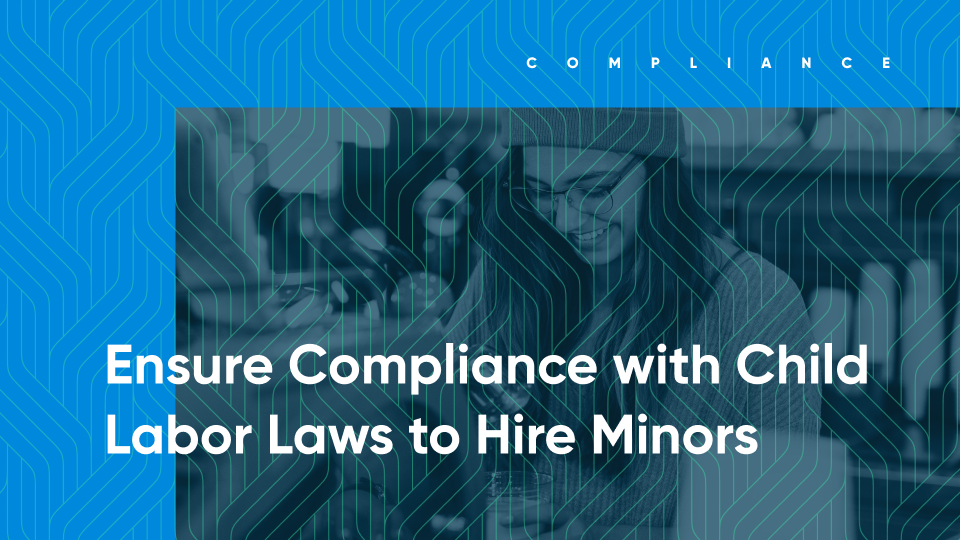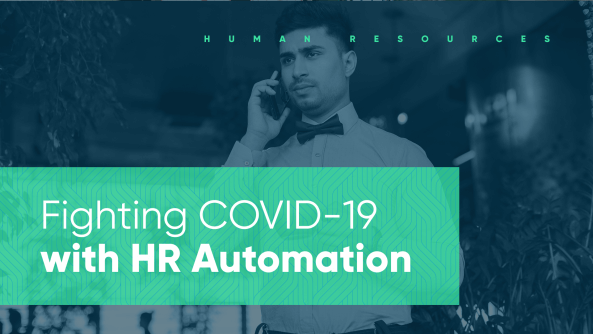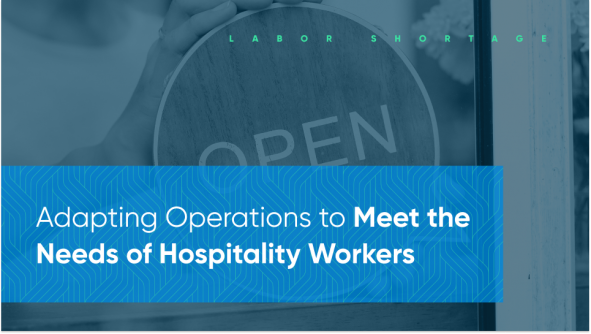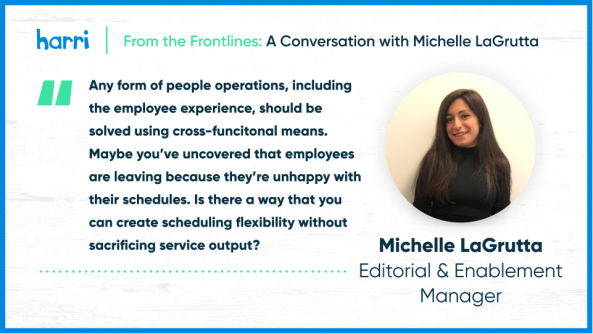Ensure Compliance with Child Labor Laws to Hire Minors

- By Harri Insider Team | April 15, 2021
When it comes to staffing restaurant operations, hiring minors is no easy feat. As if Fair Workweek and other labor requirements weren’t difficult enough to manage, child labor laws add an additional layer of scheduling complexity.
Under the Fair Labor Standards Act (FLSA), minors are subject to scheduling restrictions that dictate when they can and cannot work.
These laws vary state-by-state and oftentimes change specific requirements depending on the minor’s age. This makes compliance management for enterprise-grade hospitality businesses extremely difficult, especially those operating out of multiple cities and states. As a result, many have opted to not hire minors at all.
But companies that don’t hire minors are missing out on a huge competitive advantage.
Today’s hospitality industry is vying for talent as post-COVID restaurant demand grows larger than labor supply can handle. Operators cannot cut off a significant portion of their potential labor pool, so what’s the solution?
Understanding child labor laws for hospitality
Before tackling the compliance puzzle of hiring minors, hospitality operators need to understand potential scheduling restrictions and how they impact day-to-day labor allocation.
While laws governing when a minor can and cannot work vary by state, they follow a basic framework that revolves around an individual’s age.
- Maximum daily and weekly hours minors can work
- Maximum hours minors can work at night
A minor’s maximum permitted hours change if that individual is younger than 16 years old, with slight scheduling flexibility permitted at ages 16 and 17.
These can vary based on the time of year, too, with some states allowing minors to work extended hours in the summer.
HR and compliance managers must ensure no employees slip through the cracks by using a compliance-driven solution powered by an all-in-one HCM platform.
Stay compliant with restaurant child labor laws
If your business utilizes an all-in-one HCM platform to handle the scheduling nuances of Fair Workweek, you’re already in a great position to hire minors without beaching child labor laws. However, there are a few additional factors that come into play that can impact compliance strategies.
Restaurant managers are some of the busiest workers on your team. When they’re worried about customer service, food quality, and running smooth operations, it’s easy to trip up on labor law restrictions — especially when complying with hospitality’s extremely complex and overlapping requirements.
But that doesn’t mean you can allow employees to slip through the cracks.
Harri’s intelligent scheduling platform connects the dots between labor requirements, employee data, payroll, date, and more to ensure fully compliant schedules fit to meet the service demands of every unique location.
How does this change the scheduling building process? When it’s time to schedule employees X, Y, and Z, who all happen to be minors, Harri provides scheduling guardrails that only allow managers to schedule a minor during times permitted within your FLSA jurisdiction.
So let’s say you’re operating out of California, with Employee X being 15 years old.
Harri will only permit Employee X to be scheduled for 3 hours on a school day and 8 hours on a non-school day, cutting the weekly limit off at 18 hours per week. The schedule builder also won’t permit managers to schedule Employee X earlier than 7 am or later than 7 pm.
What if it’s summertime (June 1st through Labor Day)? Harri will automatically extend scheduling permissions to allow Employee X to work 9 pm and a maximum of 40 hours per week.
Amidst the hustle and bustle of restaurant management, it’s easy to see how scheduling guardrails can be a lifesaver. Not only are managers empowered to quickly create compliant schedules without recalling child labor law requirements, but they’re able to create schedules that can accurately reflect predicted service demands without fear of last-minute legal-driven changes.
A large majority of hospitality businesses manage employee statuses using spreadsheets, manually updating employee ages, pay rates, and more on an infrequent basis. Not only is this a waste of time, but it’s prone to errors!
And if your HR team does bulk monthly updates (because let’s face it, day-to-day updates at scale is impossible), it’s likely that you’ll miss out on weeks of additional scheduling availability if a minor turns 16, 17, or 18.
Because Harri connects the dots between employee logistical information and work availability in real-time, minors are automatically updated in your system without any manual intervention.
So if Employee X turns 16 on April 15th, managers will see new scheduling restrictions automatically updated in our schedule building software. No manual data imports, no back-and-forth between departments; just streamlined labor operations.
On top of this, HR teams must ensure work permits and other new hire documentation are filled out in accordance with FLSA requirements and are renewed each year. Because Harri’s digital onboarding tools connect employee data with all stored files on records, both HR managers and minors will be notified when work permits are due for renewal. Proactively preventing work permit expiration isn’t just a compliance win, it also avoids lulls in employee scheduling availability to maximize labor opportunities.
Opportunity Wage compliance
Compliance also applies payroll processes to ensure real-time, accurate wages. For example, employees under 20 years old may be subjected to the Opportunity Wage, which allows employers to pay these workers $4.25 during their first 90 days of work.
This 90-day period starts the employee’s first day of work and must be bumped up to at least minimum wage as soon as the 90-day window ends.
Harri’s digital onboarding keeps track of defined employee pay rate, age, as well as their first day of work for automatic payroll updates. A minor’s 90-day countdown will begin the moment they start their first shift with Opportunity Wage in effect. As soon as the 90-day window ends, that employee’s pay rate will be increased to the amount agreed upon during the onboarding process, ensuring labor efficiency and full compliance.
Labor audits and reporting
Should your hospitality business find itself being audited for labor non-compliance, minor employees open you up to additional compliance breaches — which is exactly why most businesses choose to avoid hiring minors in the first place. You’ll be required to provide digital records proving compliance with the law.
Scrambling for company records in the middle of an audit never ends well, which is why the simple act of having a detailed paper trail makes a huge difference. Harri’s reporting tools make easy work of compliance investigations.
All wage and labor-related data points and documentation are securely stored in your Harri account for easy access anytime, anywhere. View, export, or download employee records, schedules, shift swaps, manager approvals and overrides, and more.
Hiring minors in hospitality to fill labor gaps
As hospitality’s labor shortage worsens by the day, restaurants and other businesses need all hands on deck. That includes our younger workforce who will grow into industry leaders.
Child labor laws create a compliance puzzle out of hiring minors, but the payoff is worth it. Hospitality businesses that opt to hire minors can tap into a huge and largely untouched labor pool as a means to fill schedule gaps and maintain operational efficiency.





















